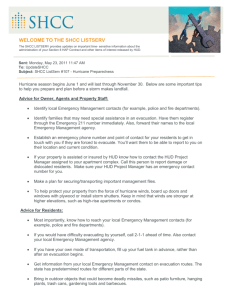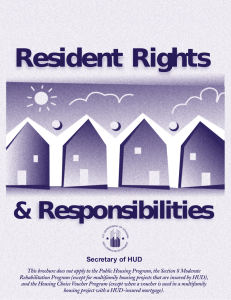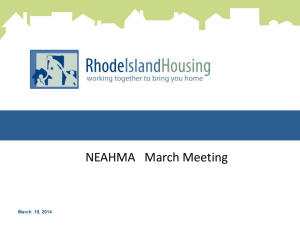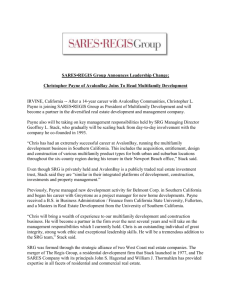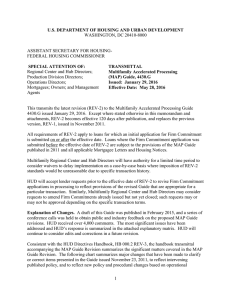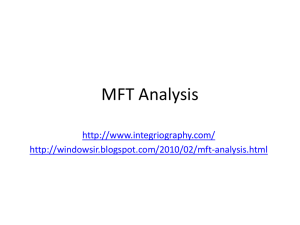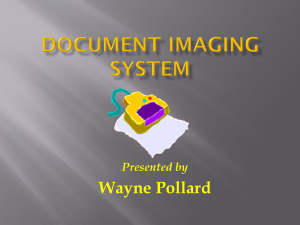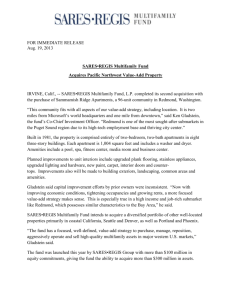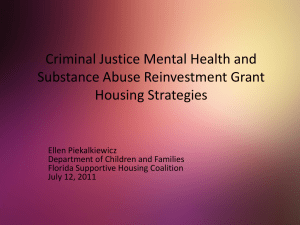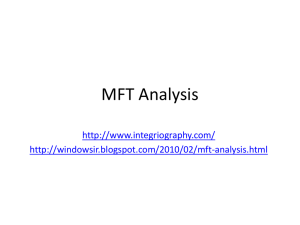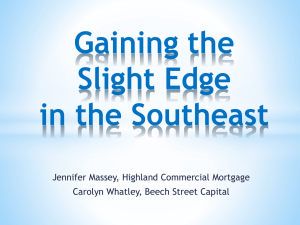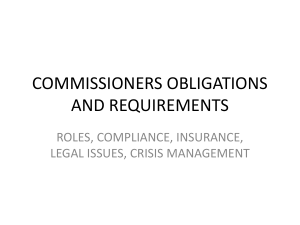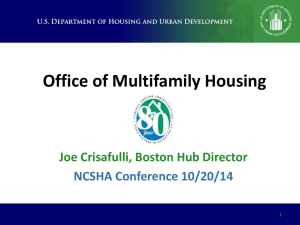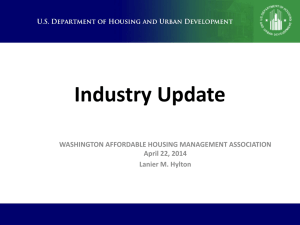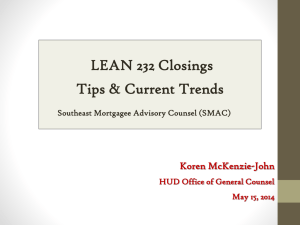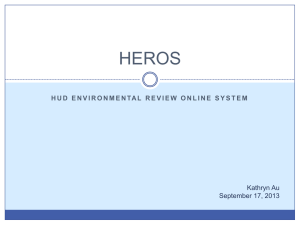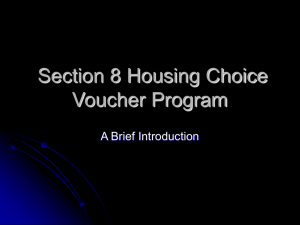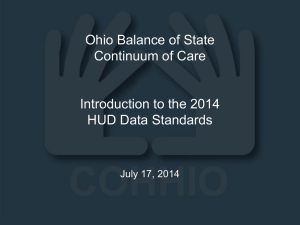HUD Albuquerque multifamily
advertisement
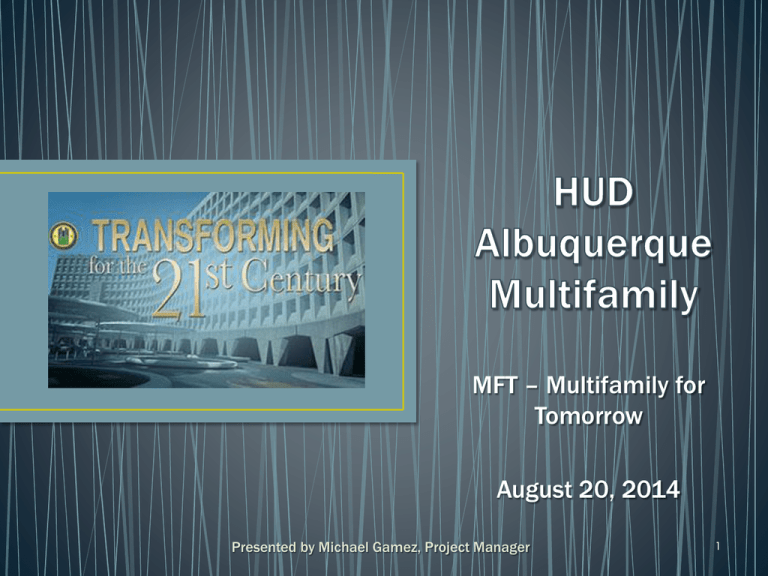
MFT – Multifamily for Tomorrow August 20, 2014 Presented by Michael Gamez, Project Manager 1 MFT – Multifamily for Tomorrow By 2016, the Office of Multifamily Housing (MFH) will complete a transformation of the way we work from a 1970s operating model to a 21st-century model that: Applies industry best practices Improves our Increases ability to manage risk accountability Improves national consistency 2 MFT – Multifamily for Tomorrow Workload Sharing Account Executive Model Streamlined Organizational Model 3 Workload Sharing Distribute workload evenly across the country Address fluctuations in work volume Reduce wait time for customers 4 Account Executive Model Multifamily Asset Management Account Executive Troubled Asset Specialist Today’s Project Managers Focus on non-troubled properties New position Focus on troubled properties 5 Streamlined Organizational Model Consolidate 17 hubs to 5 hubs Enhanced accountability Streamlined decisionmaking 6 Timeline MFT will take place over five Waves Wave 1 will be completed in January 2015 (Albuquerque, Des Moines, Houston, Little Rock, New Orleans, Oklahoma City, Omaha, St. Louis, San Antonio, Shreveport, and Tulsa) All Waves will be complete by Spring 2016 7 Action Plans When a property is classified as Troubled (rating of 1-5), a formal Action Plan is required to identify specific steps to improve performance. Three types of Action Plans: • MPIP: Marketing and Physical Improvement Plan • EMPIP: Expense Management and Process Improvement Plan • CP: Capital Plan 8 Marketing and Physical Improvement Plan For revenue issues • Goal: Increase revenue by raising community awareness, better targeting tenants, and improving the property’s appeal and safety. • Indicators: • Poor curb appeal • Poor reputation • Low occupancy & high turnover • Low rents • Lack of amenities • Criminal activity • Tenant complaints 9 Expense Management and Process Improvement Plan For expenses issues • Goal: Reduce waste and inefficiency in the project’s budget and operations. • Indicators: • Increasing operating expenses • High accounts payable balance • Improper distributions and withdrawals of project funds • Poor Management and Occupancy Review (MOR) rating • Failure to file annual financial statements • Failure to maintain property • Unresponsive to tenant and HUD inquiries 10 Capital Plan For debt issues • Goal: Improve the viability of the project through the reduction of debt service or injection of additional funding. • Indicators: • Difficulty paying debt service • High interest rate • High loan age • Low reserve for replacement account balance • Project is in need of extensive rehabilitation 11 Developing an Action Plan HUD initiates meeting with owner Once Action Plan is approved • Discuss HUD’s observations and solicit owner’s feedback • Establish reasonable benchmarks • Prioritize tasks • Establish timeline • Submit monthly updates to HUD • Assess effectiveness of plan • Close monitoring, extend timeline, or take further action 12 Case Study #1 Marketing and Physical Improvement Plan (MPIP) • Marble Apartments – Carlsbad, NM • 40% vacancy rate • Extended vacancies • Vacant units are boarded up • Frequent burglaries and drug activity • Frequent tenant complaints about lighting in parking lot • Negative publicity in local newspaper • What would you do? 13 Case Study #1 Marketing and Physical Improvement Plan (MPIP) • Marble Apartments – Carlsbad, NM • Meet with local law enforcement and review calls for service logs • Set up police substation • Improve curb appeal to attract new residents • Improve lighting, gates, and surveillance systems • Assess tenant selection criteria and house rules • Update Affirmative Fair Housing Marketing Plan • Hire an experienced management agent 14 Case Study #2 Expense Management and Process Improvement Plan (EMPIP) • Bosque Apartments – Santa Fe, NM • Accounts payable balance of $180K • Contract with Billy’s Landscaping for $10K monthly • Unpaid property taxes • Annual financial statement is past due • Owner does not respond to HUD’s phone calls or emails • Unauthorized withdrawal of $30K from reserve account • Deferred maintenance issues • Overgrown weeds • What would you do? 15 Case Study #2 Expense Management and Process Improvement Plan (EMPIP) • Bosque Apartments – Santa Fe, NM • Submit Monthly Accounting Reports to closely monitor expenses • Examine contracts and compare rates • Examine process for obtaining and awarding contracts • Develop preventative maintenance schedule • Develop prioritized plan of action to reduce payables • Develop formal staff training program • Hire an experienced management agent 16 Case Study #3 Capital Plan (CP) • La Cumbre Apartments – Las Cruces, NM • Difficulty making monthly mortgage payments • 95% occupancy rate • 12% interest rate • Mortgage matures in 2020 • Low reserve for replacement account balance • What would you do? 17 Case Study #3 Capital Plan (CP) • La Cumbre Apartments – Las Cruces, NM • Contact lender to lower interest rate or extend amortization period • Refinance and rehabilitate the property • Request approval for owner advances • Sell property to another entity with the ability to infuse capital 18 Contact Information • Michael Gamez, Project Manager • 505-346-6932 • Michael.A.Gamez@hud.gov 19
